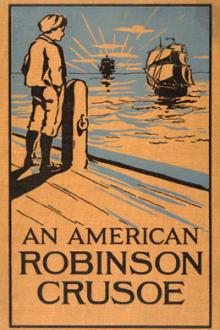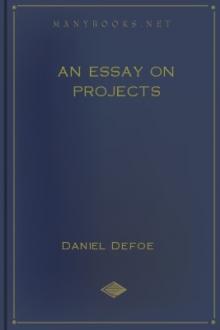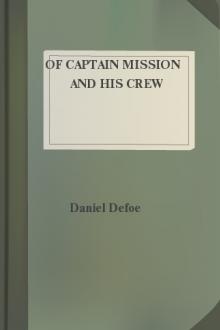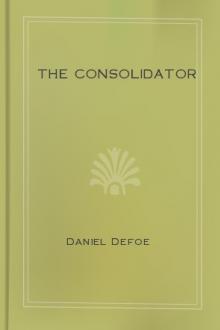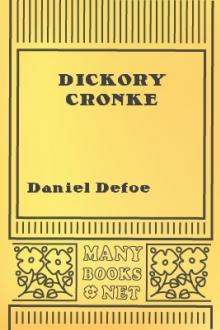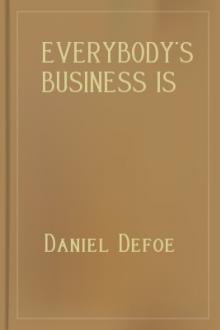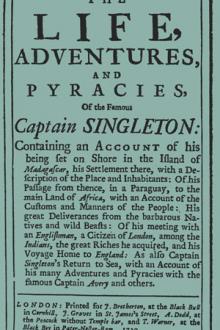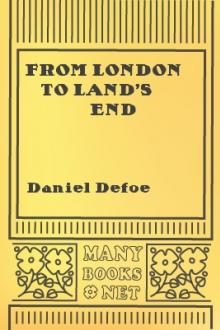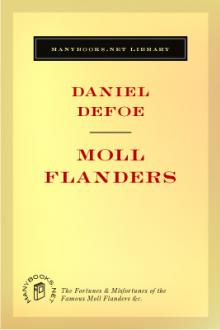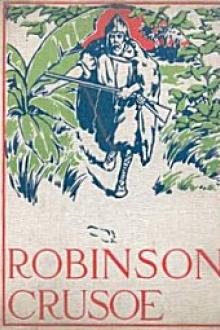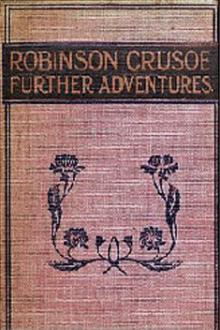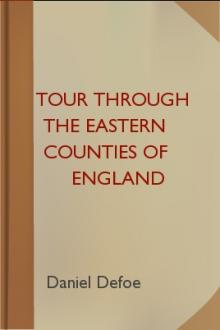A Journal of the Plague Year
A Journal of the Plague Year
written by a citizen who continued all the while in London
A fictionalised account of one man's experiences of the year 1665, in which the Great Plague struck the city of London.
Book Excerpt
od with my safety and health, was the strongest repulse to my pretensions of losing my trade and my goods; 'for', says he, 'is it not as reasonable that you should trust God with the chance or risk of losing your trade, as that you should stay in so eminent a point of danger, and trust Him with your life?'
I could not argue that I was in any strait as to a place where to go, having several friends and relations in Northamptonshire, whence our family first came from; and particularly, I had an only sister in Lincolnshire, very willing to receive and entertain me.
My brother, who had already sent his wife and two children into Bedfordshire, and resolved to follow them, pressed my going very earnestly; and I had once resolved to comply with his desires, but at that time could get no horse; for though it is true all the people did not go out of the city of London, yet I may venture to say that in a manner all the horses did; for there was hardly a horse to be bought or hired in the whole city for so
Editor's choice
(view all)Popular books in Fiction and Literature, History
Readers reviews
4.0
LoginSign up
Reading these old books on an iPhone or Kindle can sometimes be challenging because they are arranged in such an old fashioned way. With this one you have to navigate an introduction that more or less slates Defoe as a writer, something which is almost analogous to a critic suggesting that the war photography of Don McCullin is too hand held and not high enough quality for Vogue Magazine.
The introduction does not actually prepare you for what is to come and worse — it suggests that only children and kitchen wenches will enjoy Defoe's novel Robinson Crusoe. So having navigated this scathing introduction what do we find?
Whether or not Defoe read any other accounts of the plague (and what if he had?) — please suspend your disbelief and judgement. There are no chapters, it is one intense rambling and often repetitive story of unmitigating, relentless horror — some parts of which will make you uneasy in your bed. The descriptions of the daily scenes outside Defoe's window are mesmerisingly sickening in places. Defore also honestly reveals that he is a voyeur of the grotesque and has to go to a pit at night in order to see exactly what happens to the dead. For that passage alone this is an important read.
Because I have walked all these streets writing my guide to the City of London (this is a main reason I read Defoe's account) the book has a remarkable prophetic quality, almost as if it could happen again as the medieval layout is exactly the same as it was in 1665. Defoe even says at several points words to the effect of 'If this does happen again I advise you to buy strong locks for the inside of your doors and windows and stock up on three months food, water and ale'. In fact Danny Boyle should consider making a near future filmnoir using this book as a template, he could call it '28 Decades Later'.
Defoe also discusses his own fear of death, he initially thinks too much of the pros and cons of leaving the city but then finds that the plague rages around him so fiercely he may stand a better chance of survival if he never leaves the house. He also chastises with logical force those arrogant survivors who bragged about how they 'stuck it out' and that those who left to starve for three months sleeping on leaves under a sheet in a forest were somehow — inferior human beings. At one point he describes how a few arrogant drunks mocked the dying — but were all lying in a plague pit a week later.
If you are feeling glum and unhappy with your lot, I urge you to read this book as fast as you can.
And then admire your iphone, your Kindle, your colour television, your fully fitted kitchen and your car, caravan and speedboat. Admire your fine wardrobe,the luxury of central heating and your dvd collection. Give thanks that you are not scared to walk the streets and talk to people no matter how strange because contact may kill you within an hour.
And lastly give the most almighty thanks that you are not a person living in London in August and September 1665 who was nine months pregnant. For that is the ghastliest and most heartbreaking part of this book and will destroy your selfish self pity with a snap so ferocious — it might break your neck.
Yes — its the most terrifying book I have ever read.
The introduction does not actually prepare you for what is to come and worse — it suggests that only children and kitchen wenches will enjoy Defoe's novel Robinson Crusoe. So having navigated this scathing introduction what do we find?
Whether or not Defoe read any other accounts of the plague (and what if he had?) — please suspend your disbelief and judgement. There are no chapters, it is one intense rambling and often repetitive story of unmitigating, relentless horror — some parts of which will make you uneasy in your bed. The descriptions of the daily scenes outside Defoe's window are mesmerisingly sickening in places. Defore also honestly reveals that he is a voyeur of the grotesque and has to go to a pit at night in order to see exactly what happens to the dead. For that passage alone this is an important read.
Because I have walked all these streets writing my guide to the City of London (this is a main reason I read Defoe's account) the book has a remarkable prophetic quality, almost as if it could happen again as the medieval layout is exactly the same as it was in 1665. Defoe even says at several points words to the effect of 'If this does happen again I advise you to buy strong locks for the inside of your doors and windows and stock up on three months food, water and ale'. In fact Danny Boyle should consider making a near future filmnoir using this book as a template, he could call it '28 Decades Later'.
Defoe also discusses his own fear of death, he initially thinks too much of the pros and cons of leaving the city but then finds that the plague rages around him so fiercely he may stand a better chance of survival if he never leaves the house. He also chastises with logical force those arrogant survivors who bragged about how they 'stuck it out' and that those who left to starve for three months sleeping on leaves under a sheet in a forest were somehow — inferior human beings. At one point he describes how a few arrogant drunks mocked the dying — but were all lying in a plague pit a week later.
If you are feeling glum and unhappy with your lot, I urge you to read this book as fast as you can.
And then admire your iphone, your Kindle, your colour television, your fully fitted kitchen and your car, caravan and speedboat. Admire your fine wardrobe,the luxury of central heating and your dvd collection. Give thanks that you are not scared to walk the streets and talk to people no matter how strange because contact may kill you within an hour.
And lastly give the most almighty thanks that you are not a person living in London in August and September 1665 who was nine months pregnant. For that is the ghastliest and most heartbreaking part of this book and will destroy your selfish self pity with a snap so ferocious — it might break your neck.
Yes — its the most terrifying book I have ever read.
- Upvote (0)
- Downvote (0)
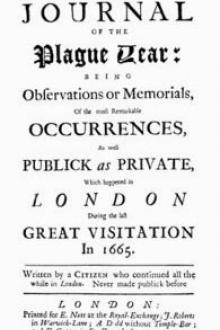
 Free Download
Free Download























